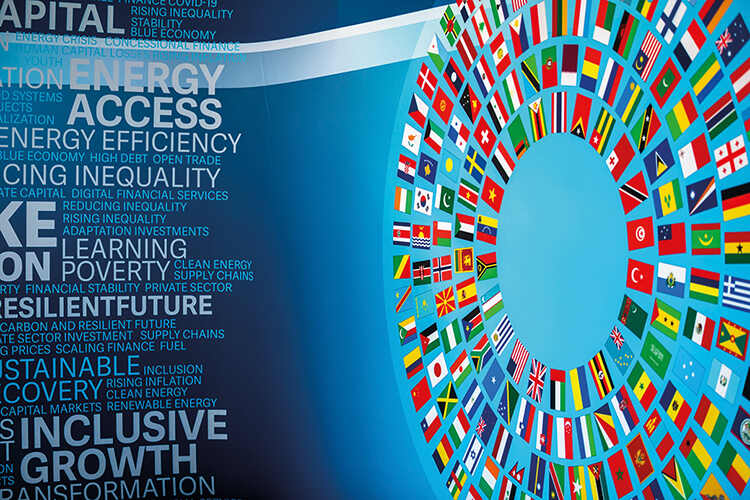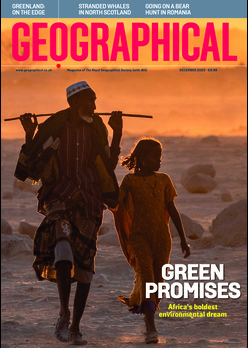

Geopolitical Hotspot
Tim Marshall considers what the first increases in global poverty in decades could mean for a fragile world order
What used to be called the developing world, now often referred to as the Global South, has received another blow. The 2024 World Bank Poverty and Inequality Platform report estimates that Covid-19 drove the first increase in global poverty in decades. The rise was almost entirely in the Southern Hemisphere, whereas elsewhere, it continued to fall.
This is likely to increase dissatisfaction in the South with the established international Western-led order. The levels of discontent are hard to judge, and it suits the leaders of states such as China and many lower-income countries to encourage this resentment, but at the same time, there are historical and current reasons that it exists.
Using the term Global South became fashionable because Third World and ‘developing’ were considered to be pejorative. It’s a general rubric for decolonised low-income nations, mostly in the Southern Hemisphere but including China and India. Not everyone likes it. Last year, the G7 countries didn’t use it in their summit communique as it ‘may give the impression of lumping together countries with diverse circumstances’.
The World Bank report suggests poverty levels in South Asia rose by 2.4 per cent to 13 per cent between 2019 and 2020. The figures for Africa are limited but are thought to have gone up. People in both regions remember that the rich world initially kept anti-Covid vaccines to themselves. The imposition of strict lockdowns hit poorer countries harder than richer ones due to more crowded living conditions and less ability to work from home. Agricultural workers lost a whole season, harvests failed and the subsequent food insecurity fuelled inflation. Since then, economic recovery from the pandemic has been slower in the poorer nations.
The war in Ukraine has also led to accusations of double standards. Western nations and allies demand sanctions against Russia. The response from numerous countries is: ‘Let us know when your European civil war is over, and don’t expect us to take a position.’ Most of the 70-plus countries considered to be in the Global South didn’t sanction Russia, and many have actually increased trade with Moscow.
The war between Hamas and Israel has aggravated the divide, with people comparing Israel’s actions to that of Russia and asking why Western nations have reacted differently to them. The accusation of hypocrisy in the commitment to international law is frequently heard.
Underpinning some of the resentment is the collective memory of colonialism. This is fertile ground for Russia and China, which seek to undermine democracies and deny the concept of universal human rights. In turn, this suits the autocrats in many countries, who have a similar agenda.
The term Global South may have its uses as shorthand but is also flawed because it can assume a monolithic view that doesn’t exist. Some states lean towards the West, others towards China and Russia, and some try to balance between them all. Countries such as the Philippines, Indonesia, Papua New Guinea and Malaysia have defence agreements with the USA, and Washington’s ties with the Association of Southeast Asian Nations have never been stronger.
Conversely, while many Global South nations have a generally favourable view of China, Beijing’s Belt and Road initiative has had mixed success, with many projects abandoned, others shoddily completed, and many countries left with environmental destruction and huge debts, making them open to Chinese manipulation. Beijing’s commitment to the downtrodden of the world doesn’t sit well with its companies’ mistreatment of local workers, and China’s persecution of its own ethnic minorities.
For its part, Russia’s economic crisis will make it hard for Moscow to influence any Global South countries except those with fragile dictatorships requiring help from Wagner Group-style mercenaries. People in Mali may have a dim view of their former French colonial occupiers, but the massacres committed by Russians there won’t endear them to the Kremlin.
So, while it’s fair to say that there is a large part of the globe where significant numbers of people resent the rich countries for their past history and present hypocrisy, there isn’t a single homogeneous geographic bloc working against the industrialised democracies. Some Global South countries are enemies of those democracies, some are partners. The World Bank report should encourage the rich democracies to work towards having fewer of the former, and more of the latter.




